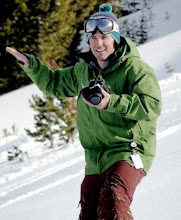
Of course I am talking about a blog about the Four Quartets as a whole. A summation, a collection of the wanderings of my brain. I have no Idea where this is going.
Things I've noticed...
Paradox- Pat's discussion of paradox got me to start looking for paradoxes all over the quartets. Throughout the poem Eliot uses paradox to describe the indescribable. The still point, the point that is neither arrest nor movement. The end and the beginning. Between melting and freezing. Where I get a bit held up is the purpose to all of these paradoxes?
Adventure and the Still Point-
"At the still point, there the dance is" (Burnt Norton). A common theme through the presentations was the point of enlightenment existing in some indescribable area between stillness and motion. I think (in more general terms) the source of the river in Dry Salvages is the still point of Burnt Norton and the Sea is the vast knowledge attainable to those willing to explore the Still Point. However the journey is not as simple as tubing a river. Some voyagers "ended their voyage on the sand, in the sea's lips, Or in the dark throat which will not reject them" (Dry Salvages). There is threat of fire in the river from the "dark dove with the flickering tongue" (Gidding). Loneliness and loss fill the river yet the only option is for the voyager, once he has accepted the mission, is to "fare forward". The adventurer exploring the waters of the still point must realize "all shall be well" even when no hope exists. The journey is not pretty or romantic rather it is disjointed and winding like a river flowing through a delta. Each decision on the journey comes with the possibility of the opposite, the possiblity of the the other decision. Those decisions not chosen flow along side as other branches of the delta. They are "echoes" that follow the traveler (Norton). Even with these unrealized possibilities, the adventurer must always "fare forward" because true enlightenment occurs at the end...and at the beginning "And what you thought you came for, is only a shell, a husk of meaning, from which the purpose brakes only when it is fulfilled, if at all."
Bhagavad Gita/Dry Salvages-
I also became quite interested in this part from section 3 of the Dry Salvages
While time is withdrawn (in the still point maybe), consider the futer
And the past with an equal mind. (That is look to the echoes)
At the moment wich is not of action or inaction
You can receive this: "on whatever sphere of being
The mind of a man may be intent
At the time of death"-- that is the one action
(And the time of death is every moment)
Which shall fructify in the lives of others:
And do not think of the fruit of action.
Fare Forward.
(Salvages section 3)
The quote is from the Bhagavad Gita. In full it reads "on whatever sphere of being The mind of a man may be intent At the time of death, tither he will go." I find this interesting because i think Death can be another "still point" and like death the primary thought at a "still point" will be the catalyst for the journey I described above.
Of even more interest is another quote from the same section of the Gita. "To him who thinks constantly of Me, and of nothing else, to such an ever faithful devotee O Arjuna, am I ever accessible." To me, this is more than just a call to reflect on a higher power. A person dedicated to reflecting on the knowledge available in the "still point," or moment of enlightenment, will realize how accessible enlightenment truly is. Enlightenment isn't having the right thought, rather it is thinking right. Grasping the "still point" and riding out the river of unmoving enlightens the soul in a much greater way than some profound comprehensible thought. We must "suffer the trial and judgement of the seat, Or whatever event, this is your real destination" (Salvages section 3). Enlightenment comes not from the beginning or the end of the river (as these are one in the same) but rather from the bends of the river, the tributaries of the river, and the river delta all easily accessible so long as you think right.
I'm not sure i completed a single thought in this blog post but i tried. I consider this post the beginning of my float after being trapped for an extended period of time in an eddy.

No comments:
Post a Comment